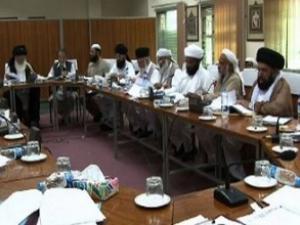Short Description
The use of DNA test as a prime evidence in rape cases is sparking a huge controversy among Muslim scholars and women activists in Pakistan.
The use of DNA test as a prime evidence in rape cases is sparking a huge controversy among Muslim scholars and women activists in Pakistan, amid consultations among religious leaders to reach a common ground on the issue.
“My humble opinion in this regard is that the DNA result can be taken as secondary evidence, but not as primary evidence because it will create a lot of complications and misunderstandings,” Mufti Mohammad Naeem, a Karachi-based religious scholar, told OnIslam.net.
The Council of Islamic Ideology has earlier called for using the DNA test as a prime evidence in rape cases.
Mufti Naeem, who is also the Principal of International Binoria University Karachi, warned that the move would create more problems.
“This is not my final argument as I am in touch with other religious scholars to come up with a joint view on the issue after consultation,” he said.
“But till today, my opinion is that DNA test can be secondary evidence because of various reasons.”
The scholar accused women rights groups of misunderstanding the difference between Zina (adultery) and rape.
“They in Urdu use the terminologies of Zina Bil Raza (adultery), and Zina Bil Jabar (rape). These terminologies are wrong,” he said.
“There is a huge difference between the two. Zina is always with the consent of man and woman, whereas rape is a forced act. The term Zina cannot be used in this context.”
He believes that even if the DNA results are considered incontrovertible, it can work out in case of Zina, but not in case of rape.
“The DNA result could only prove the happening of sex, but how would it prove that the sex was forced or with consent.”
Debate
But other Muslim scholars have a different opinion.
“DNA test is evidence like other kinds of evidences,” Dr Javed Ghamidi, a Lahore-based religious scholar, told OnIslam.net.
“In noble Qur’an, there is no particular way to collect evidence. Therefore, instead of arguing over the ways to collect evidences, the evidence itself should be given the preference.”
Dr Ghamidi says that in the Qur’an, Muslims are asked not to hide the evidence even if it goes against themselves or their family members.
“Therefore, there should be no reluctance in taking the DNA result as an evidence,” she said.
Sharing a similar view, Anees Haroon, a Karachi-based women rights activist, hits out at opinions opposing the use of DNA tests as prime evidence in rape cases.
“This all is aimed at protecting the rapists”, she said.
“In Pakistan, where poor investigation, fake medical reports, social pressures, fear and bribe simply go in favor of the rapist. In these circumstances, it will be foolish not to depend on the scientific procedures to bring the culprits to justice.
“These foolish recommendations show that how conservative and out of touch with latest developments, and scientific approach, are the office-bearers of CII.”
But Mufti Naeem still sticks to his guns.
“When did I say that DNA report should not be taken as an evidence. My argument is that it should be taken as secondary evidence rather than primary evidence,” he said.
“Let me reiterate that if DNA results help vis-à-vis dispensation of justice, it should be considered. But handing down death penalty on the basis of DNA report is not justified.”
Secondly, he thinks, the sole dependence on DNA report will eliminate the role of witnesses in case of Zina or rape.
“What if a woman has sex with a man with consent, and just to save her life, she heaps the blame of rape on the man. Will DNA report tell us whether the sex was forced or with consent?”
http://www.onislam.net/english/news/asia-pacific/463001-dna-in-rape-cases-divides-muslim-scholars.html






![نصيحتي لك: اذكر الله [1 / 12] نصيحتي لك: اذكر الله [1 / 12]](http://97.105.52.213/images/upload/content_thumbs/1913613138ragheb-al-serjany-videos.jpg)


Comments
Send your comment